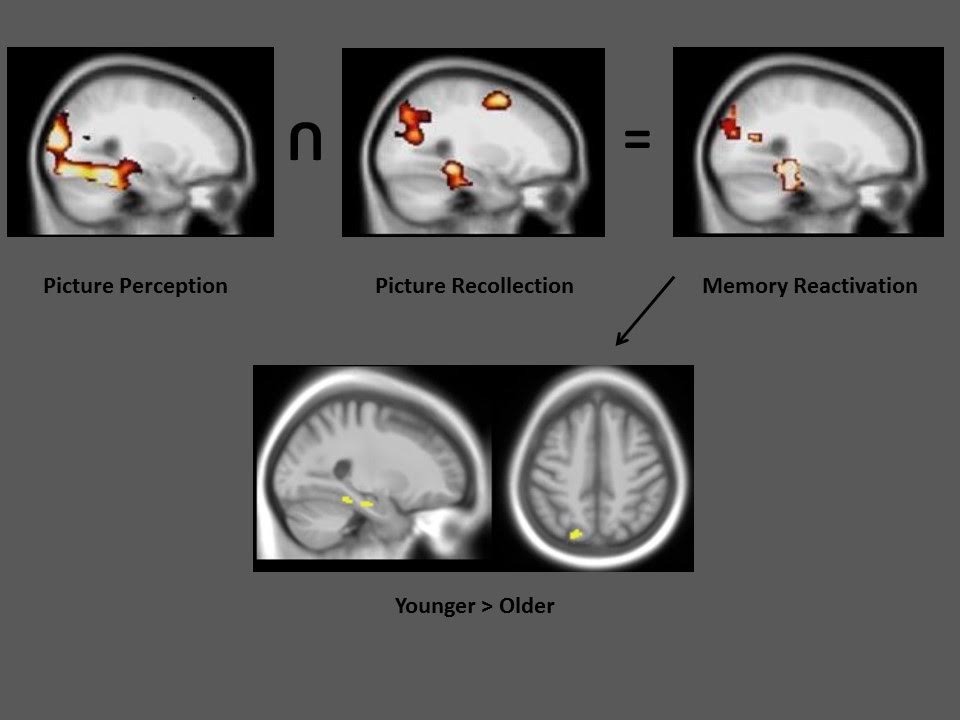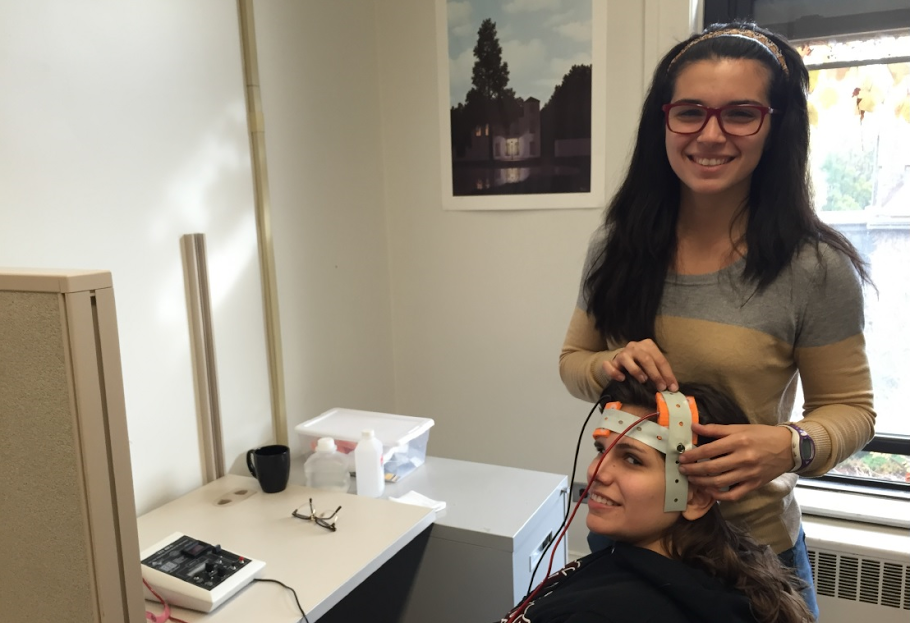MEMORY RESEARCH LABORATORY | DEPARTMENT OF PSYCHOLOGY
Research
In our lab, we seek answers to the following sorts of questions: What cognitive and neural mechiansms are involved in the creation of memories? What cognitive and neural processes are affected (or not) by healthy aging and Alzheimer’s disease? How are emotional memories processed, and how do social factors influence remembering? What do we know about our own memory functions (metamemory), and how does this knowledge vary across individuals? How do different psychoactive drugs or brain stimulation techniques impair or improve memory?
Use the boxes below to explore some of our current lines of research and associated news/media coverage.
False Memories and Retrieval Monitoring Mechanisms
A d
Retrieval monitoring can be defined as the cognitive search and evaluation processes that people use when attempting to recollect events from memory. When retrieval monitoring fails, memories can be distorted. Using carefully designed behavioral tasks as well as neuroimaging (fMRI), our lab aims to understand the psychological mechanisms involved in retrieval monitoring, as well as the different factors involved in false memory creation. For an overview of our research on the different retrieval monitoring mechanisms that are known to affect false memory creation — in both the lab and in life — see Gallo & Lampinen (2016, Oxford Handbook of Metamemory), and also see Gallo (2013, Current Directions) and Gallo (2010, Memory & Cognition). For our recent study exploring individual differences in cognitive abilities and their relationship to “paranormal beliefs”, see Gray & Gallo (2016, Memory & Cognition)
Media coverage:
Memory and Metacognition in Aging and Alzheimer’s Disease

fMRI evidence for aging-related decrease in the visual details associated with subjectively vivid memories
(from McDonough et al., 2014, NeuroImage)
Normal cognitive aging is sometimes associated with reduced performance on memory tests, but not always. Alzheimer’s disease causes qualitatively different and more severe impairments. Using behavioral tasks, subjective reports, and neuroimaging (fMRI), our lab studies differences – and similarities – between younger and older adults on tasks of memory and cognition, as well as the extent that people are aware of their own cognitive abilities (known as “metacognition”). A better understanding of these mechanisms will help us to more effectively disentangle normal aging from the earliest stages of Alzheimer’s disease, and to ultimately design more effective treatments. We have also been exploring the effects of social factors on cognitive performance in older adults (stereotype threat, see Wong & Gallo, 2016, Memory). These social factors have important clinical implications because they suggest that reduced performance on cognitive tests in older adults and corresponding differences in brain activity do not necessarily implicate neural decline.
Effects of Psychoactive Drugs on Memory Distortion
Relative to placebo (PLA), alcohol (ALC) impaired the encoding (ENC) of negative and positive pictures, whereas alcohol during the post-encoding consolidation period increased memory for neutral pictures (from Weafer et al., 2016).
Psychoactive drugs — such as cannabis, alcohol, and amphetamines — are known to have acute effects on memory and cognition, but many people use and abuse these drugs. A better understanding of how these drugs affect memory and cognition will inform clinical efforts to treat disorders associated with drug use, as well as our understanding of drug effects in recreational contexts. Over the past few years, we have collaborated with Dr. Harriet de Wit, at the University of Chicago Department of Psychiatry, to conduct carefully controlled behavioral experiments on the effects of these drugs on human episodic memory. One of our key findings has been that drugs that impair cognition (such as THC, the active ingredient in cannabis), disproportionately impair emotional over neutral memories, whereas stimulant drugs (such as amphetamine) disproportionately boost emotional over neutral memories (see Ballard et al., 2013, Psychopharmacology).
Using Artificial Brain Stimulation (tDCS) to Improve Cognition
Neuroimaging techniques such as fMRI have revolutionized our scientific understanding of the mind, but their correlational nature constrains their application. Brain stimulation techniques are exciting, not only for the potential to enhance cognitive
Media coverage:


